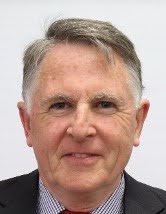Mini Symposium 2025 Nov 6 - Terence Love
|
Variety Dynamics: Because Systems Science Cannot Address Most Real-World Systems Problems
Abstract
Terence Love, presented Variety Dynamics: Because Systems Science Cannot Address Most Real-World Systems Problems in the Mini Symposia series. His presentation introduced Variety Dynamics and demonstrates its practical application to highly complex problems, revealing both its effectiveness and efficiency in situations where conventional systems thinking approaches typically prove inadequate or fail entirely. The axioms of Variety Dynamics indicate that most difficult, interesting or important real-world situations do not conform to the foundational assumptions on which Systems Science methods are based. Yet practitioners routinely apply these methods regardless, leading to demonstrable failure. This challenges the field's foundational belief that systems approaches can address any situation regardless of complexity. Variety Dynamics is epistemologically more valid and much faster than causal systems approaches for complex and hyper-complex systems, providing more insightful, rapid guidance for professional decision-making in situations involving power asymmetries: disaster management, diplomacy, user interface design, epidemics, climate change, transport management, urban planning. Variety Dynamics identifies leverage points through variety distributions, revealing solutions invisible to causal methods. Easy for managers, decision-makers and designers to understand and use, the fundamental shift to variety-based thinking marks a useful change from causal systems methods. Five case studies demonstrate rapid, effective application of Variety Dynamics across diverse domains, achieving in minutes what conventional approaches require weeks or months—when they succeed at all. In each case, Variety Dynamics provides rapid insights for situations that would be intractable and slow using conventional causal Systems methods. Variety Dynamics works without requiring massive technical resources or specialist expertise that other Systems methods demand. It requires thinking in options (variety) rather than causes. It integrates well with AI: gathering information, applying Variety Dynamics axioms, and analysing situations faster than humans while being easily questioned. Practical experience with Claude AI demonstrates this is valuable and effective for real-world complexity. The presentation concludes with implications for systems science. If highly complex problems can be addressed more effectively without causal analysis, what does this suggest about our methodological toolkit? How should practitioners be trained? What research becomes possible beyond the causal paradigm? This presentation challenges fundamental assumptions of Systems Science and offers Variety Dynamics as a practical, demonstrable alternative for addressing the majority of real-world complex challenges which are in reality beyond the reach of causally-based Systems Science methods.
Provided ID could not be validated.
Short Bio
Bio Professor Dr. Terence Love, CMath, is CEO of Love Services Pty Ltd. He received his education in mathematics, engineering, and computer science at Lancaster University and the University of Western Australia and has been engaged in systems research and practice since the 1970s. His early research included programming artificial intelligence systems for mechanical engineering design optimization (1971-5), developing one of the earliest word processors (1972), and contributing to future vehicle design for a UK manufacturer. During the 1980s, he contributed to AI systems for managing French natural gas production, renewable energy systems development, early hypertext-based learning software, and early applications of desktop publishing and CAD technologies. During the 1990s, Professor Love undertook research spanning the natural sciences, engineering, social sciences, and arts, focusing on the social, technical, environmental, psychological, philosophical and ethical aspects of design activities. In the late 1990s, working with Professor Trudi Cooper, he began developing Variety Dynamics as a non-causal analytical framework for highly complex and hyper-complex situations that exceed the scope of conventional systems thinking methodologies. Since then, he has continued research into design processes, supervising and assessing numerous doctoral, masters and honours research projects. This work has increasingly focused on how systems approaches contribute to design decision-making, particularly the cognitive neuroscience underlying creative thinking, emotion, and human cognitive limitations. His current professional practice focuses on crime prevention through environmental design, having provided strategic advice on developments valued at over $13 billion and delivering training to police forces, local governments, urban planners, and other professionals across Australia, Europe, and the Middle East.

